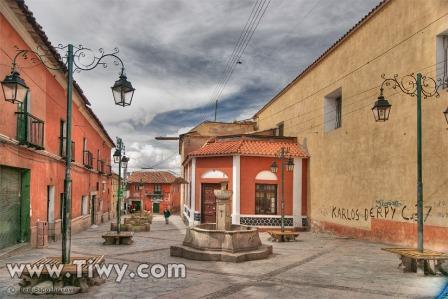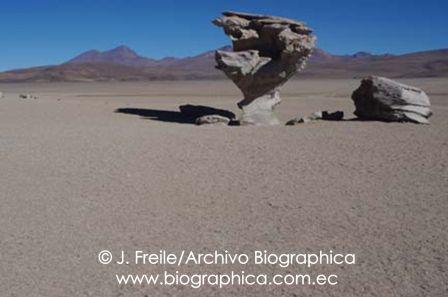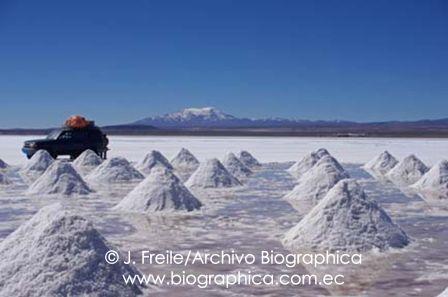|
Potosi in Bolivia: Tourist Information Planning to travel Potosi in Bolivia? Potosí is best known for it’s famous silver and tin mines and for the Salar de Uyuni, one of Bolivia’s top tourist attractions. Use this checklist of things you need to know about Potosi when planning your trip. Use the links above and below for more information and click here to read about the history of Potosi.
Before you go1. Don't underestimate the distance. Potosí is about 15 hours by bus from La Paz. See our Potosí home page to read more about Potosí. Most tour-related activities in Potosí involve the Salar de Uyuni which is even more remote! 2. Use a well-trusted tour operator and take a planned Salar de Uyuni tour. This is one of Bolivia's most popular tourist attractions. Everyone wants to be an Uyuni tour operator. But not everyone does it well. Not all use experienced drivers or guides. It's why I recommend travel insurance and this tour operator. 3. Be sure you can withstand high altitudes. Located over 15,000 feet above sea level in a very remote region, Potosí is not a good idea for people with heart conditions. There will be long drives to get there and the weather is cold too. Read about altitude sickness here and what you can do to get relief. 4. Reserve a hotel or hostel well in advance. If you decide to go on your own, book a hotel or hostel online through a trusted site before you arrive. What to take1. Sunglasses. The vast Uyuni salt flats act as a mirror reflecting the sun. 2. Sun block. The stark whiteness of the salt beds doesn’t absorb light like colors do. Sun block also helps keep your skin moist. 3. Moisturizer. This is an extremely arid region and your skin will dry out. You may find yourself using both sun block and moisturizer. 4. Bottled water. You can purchase beverages when you arrive, but it's a looong drive out there. 5. Warm clothing. This is a desert are but it's 3650 meters above sea level. Nights are cold and it's very windy. Dress in layers so you don't sweat or freeze. Potosí weather. 6. Sleeping bag. The more expensive hotels have heating but cheap hostels may not. Wind chill factors make it feel even colder than it is. 7. Swimsuit. If you plan to visit the hot springs you'll need one. 8. Rain boots. If you travel during the rainy season, you'll need these to explore the salar, the mines or anywhere streets aren’t paved. 9. Fuel and oil. If you choose to rent a car you should take extra fuel and lubricants. Gasoline (petrol) stations are few and far between. 10. A well-maintained vehicle. You can only find very basic mechanic shops in small towns along the way so be sure your vehicle is in top shape! 11. Tools, shovel, pick axe, spare tire, and during the winter you may even need anti-freeze for your car. 12. Cash. Although there are several banks in Potosí, there are no ATMs in the Uyuni Salt Flats. In addition, Potosí has been the site of numerous road blockades and protests in the past year and tourists have unfortunately been stranded at these times. 13. Proper cellphone. If you plan to bring your international cellphone, you should know Bolivia uses a different system than many countries. Read more about that below. 14. Cameras, batteries, battery chargers, cellphone charger, electric current converter and if you use a digital camera, extra memory cards. The electricity in Potosi is 220.
When to goThe impressive and diverse geography of this region and the Eduardo Avaroa national reserve offer attractions throughout the year. However, you should take seasonal variations into account. Between November and March (summer in Bolivia) the weather is slightly warmer but it's also the rainy season. Tours may be delayed as roads are washed out or damaged. The rainy season, however, is also when thousands of flamingos migrate to the region to mate. You'll find them around the Laguna Colorada and Laguna Verde. The best month to see this is usually December. In the winter, especially in June and July, temperatures can drop to well below freezing. The air is very dry and it doesn't rain. Bring lots of winter clothing during this time. Click here to see the weather in Potosi today and for the next 15 days. Click here to see more about the climate in Bolivia. Click here for tourist attractions in Potosi you can visit during the year. Tourist Information1. Electricity in Potosi, Bolivia is 220 V. 2. There are several banks in Potosi but they won't be open during the siesta hour (roughly 12:00-2:30) and will be closed on weekends. Banks and some "casas de cambio" (exchange houses) change dollars, euros, pesos chilenos, and soles, etc. There is also a Western Union in Uyuni. 3. Few establishments accept credit cards. Few accept travelers checks. Hotels may be able to exchange dollars or Euros but little stores, small hotels and most restaurants won't. Here's more on Bolivian money. 4. There is national and international phone and fax service at the local ENTEL "call centers" at Calle Cochabamba esq. Plazuela Arce (Zona Central). There are also a few internet cafés. Most hostels don't have internet or WIFI. Most larger hotels do. If you plan to bring a cellphone with you, be aware that Bolivia is on a different grid and many overseas cellphones don't work here. If you choose to travel without one, here's how to place phone calls in Bolivia. 5. Most tour prices don't include extra things like entrance fees to the Salar, Eduardo Avaroa reserve, and other attractions you may want to see like museums. 6. Be careful of "police officers" who ask to see your passport or documents. Still, by law you must carry your documentation at all times. 7. Many tour operators don't have English-speaking guides. If they do offer a translator, the translator costs extra. 8. There is a tourist information center called the Centro de Información e Interpretación Turística de Potosí (C.I.I.T.) that is part of the Potosi Bolivia Hotel Chamber (www.potosy.com) 9. Never accept a foreign bill, such as dollars, that have even the tiniest tear. No one will accept them from you. 10. The post office (ECOBOL) is located on Calle Lanza N°3 esquina Chuquisaca Tel: 612-4721. There is also a small post office inside the bus terminal. 11. Canal 11 (ATB Canal 11 Potosí located at Alba esq. Antofagasta - phone: 622-7833) is the local Potosí TV channel. In addition, Potosí receives most national television channels. 12. If you need medical care, there are two hospitals (Hospital Daniel Bracamonte – phone: 624-3928 on Chacas street and Hospital Libertador – phone: 622-3808 of Hernández street). There are also 10 medical centers including the Bolivian Red Cross (Av. Camacho No 127 – phone: 622-6045). You should keep in mind, however, that most medical centers in Bolivia are not as well equipped as those you may find in North America or Europe. 13. There are a few laundry services. If your hotel or hostel itself doesn't offer this service, they can tell you who does laundry by the kilogram in town. 14. In Potosi the Immigration Office (Migración) is located at Calle Calama No. 118 Phone: (591)-2-622-2745 - Fax: (591)-2-622-5989 15. The Police Station is on Plaza 10 de Noviembre – phone: 622-6550. 16. I seriously recommend travel insurance if you're planning to take an Uyuni trip. I never used to but now here's why I do.
How to get thereBUSES The Terminal de Buses in Potosi is located on Avenida Universitario and you can take buses from Sucre, Cochabamba, Oruro and La Paz (from other Bolivian cities you’ll go through one of these cities either way). It’s worth the few extra dollars to take a bus cama (a bus with slightly larger, wider seats that recline further back). From La Paz it’s a long trip, frequently between 12 and 15 hours, going through Oruro. From Sucre it’s only a 3-hour trip, from Cochabamba it is a 12-hour trip, and from Uyuni it’s a 6-7 hour trip to Potosi. Normally buses are very inexpensive – only between $10 and $15, from Cochabamba and La Paz, and about $5 from Sucre. Catch a bus at the “terminal de buses” of any of these cities to begin your trip. TAXIS From Sucre you have two other options: mini-buses and express taxis. If you have a group of 3 or 4 people, you can share the cost which currently is about $25. You’ll find these express taxis at the Sucre airport. FLIGHTS Potosí has a very tiny airport and there are no commercial flights to Potosí. If you don’t enjoy overland travel your best option is to fly to Sucre and take a taxi from Sucre to Potosí. The Bolivian government promised Potosi in 2010 that it will build an airport for the city.     |


